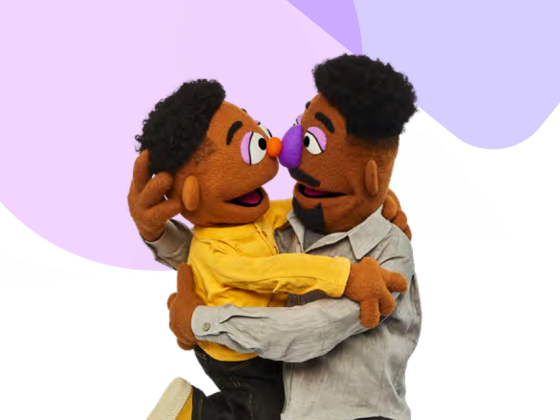
Mental Health Resource and Support List for Parents
If you’re concerned about—or considering seeking professional support for—your child’s emotional well-being, there are lots of resources just for you.
Reaching Out
If you’re feeling worried about your child’s mental health, it’s more than okay to ask for support—it’s brave! Beyond sharing your concerns with your child’s doctor or teacher, or trusted friends and family, you can connect with professionals dedicated to supporting children and families. You’re not alone in this journey, and seeking help is a positive step toward getting your child to a therapist, counselor, or social worker to get the care they need.
If you are concerned about an immediate crisis, call the 988 suicide and crisis hotline or 911 for other emergencies.
Talk to Your Child’s Pediatrician:
Share your concerns with your child’s doctor—they not only care about your child’s physical health, but their mental and behavioral health too! They may refer you to a professional.
Talk to Your Child’s Teacher:
Often, teachers are the first to notice if children are struggling. A school psychologist or counselor may be available, and schools often have connections with outside mental health professionals.
Search for Therapists at locator.apa.org, where you’ll also find links to therapists specializing in treating a variety of diverse communities. Other directories are GoodTherapy.org, psychologytoday.com/us/therapists, findapsychologist.org, or openpathcollective.org (which specifically lists reduced rates).
Contact Insurance Providers:
Call your health insurance company or provider or visit them online for a list of in-network providers.
Find Resources & Support
Remember, many children are facing the same challenges as your child, and there’s a lot of free information online:
- InfoAboutKids.org has resources addressing children’s healthy development across four areas: body, mind, emotions, and relationships.
- National Child Traumatic Stress Network (nctsn.org) has resources, materials, and tools to help you support children impacted by trauma.
- Effective Child Therapy (effectivechildtherapy.org) and National Alliance on Mental Illness (nami.org) provide resources, support, and referrals.
- Substance Abuse and Mental Health Services Administration samhsa.gov/find-help and 1-800-662-HELP hotline are confidential, free, 24/7 information services offering referrals to local treatment facilities, support groups, and community-based organizations.
Compiled by The American Psychological Association (www.apa.org/topics/children).

We’re Learning as We Go
Watch this video and discover habits to support your family’s digital well-being.

Episode 1 - Ask an Expert: Choices
In the first episode of this six-part series, hear from an expert about how daily decision-making plays a role in family digital well-being.
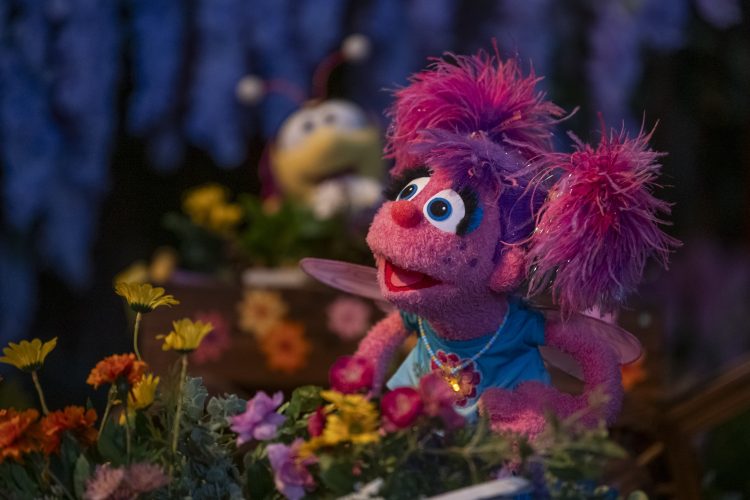
Watch and Play: Abby's Magical Beasties
Watch this episode and explore ways to extend the learning at home.
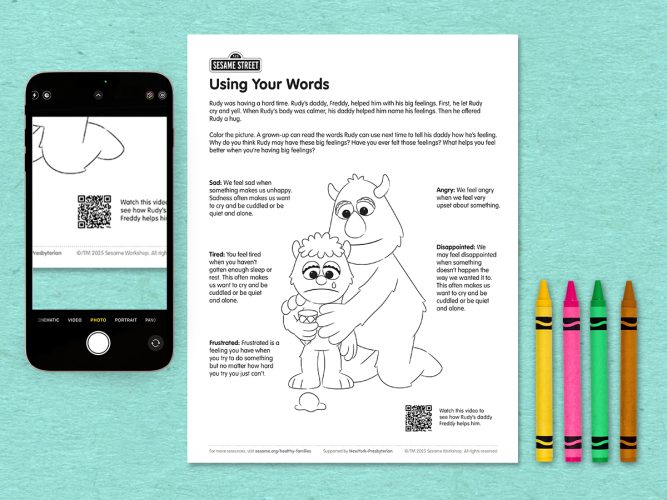
Using Your Words
A coloring page helping children explore words for big feelings.
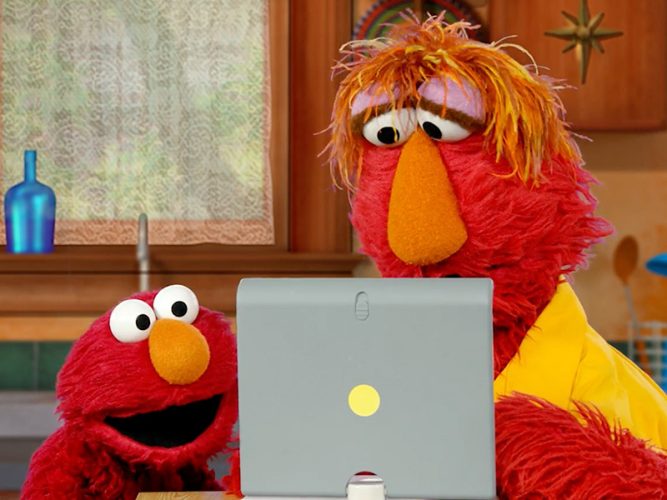
C is for Choices
Elmo and Louie make choices on how and when to use technology as a family.
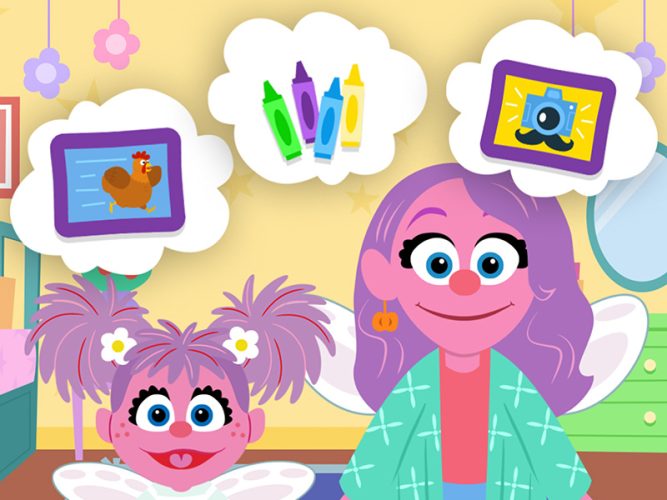
C is for Choice
A game about making choices, big and small.
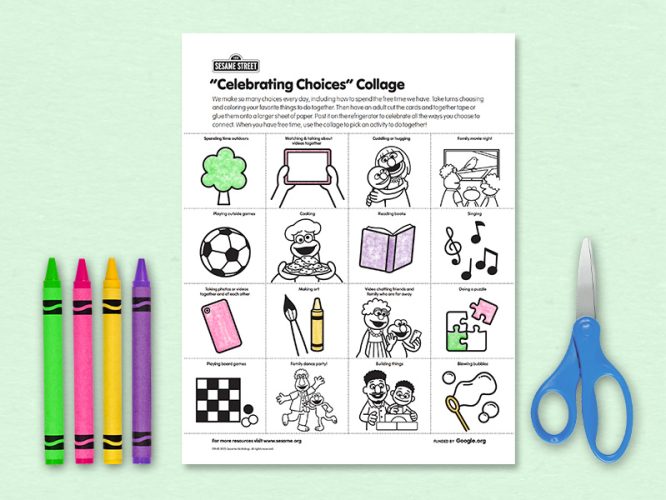
“Celebrating Choices” Collage
Celebrate the ways you choose to spend time together as a family!
